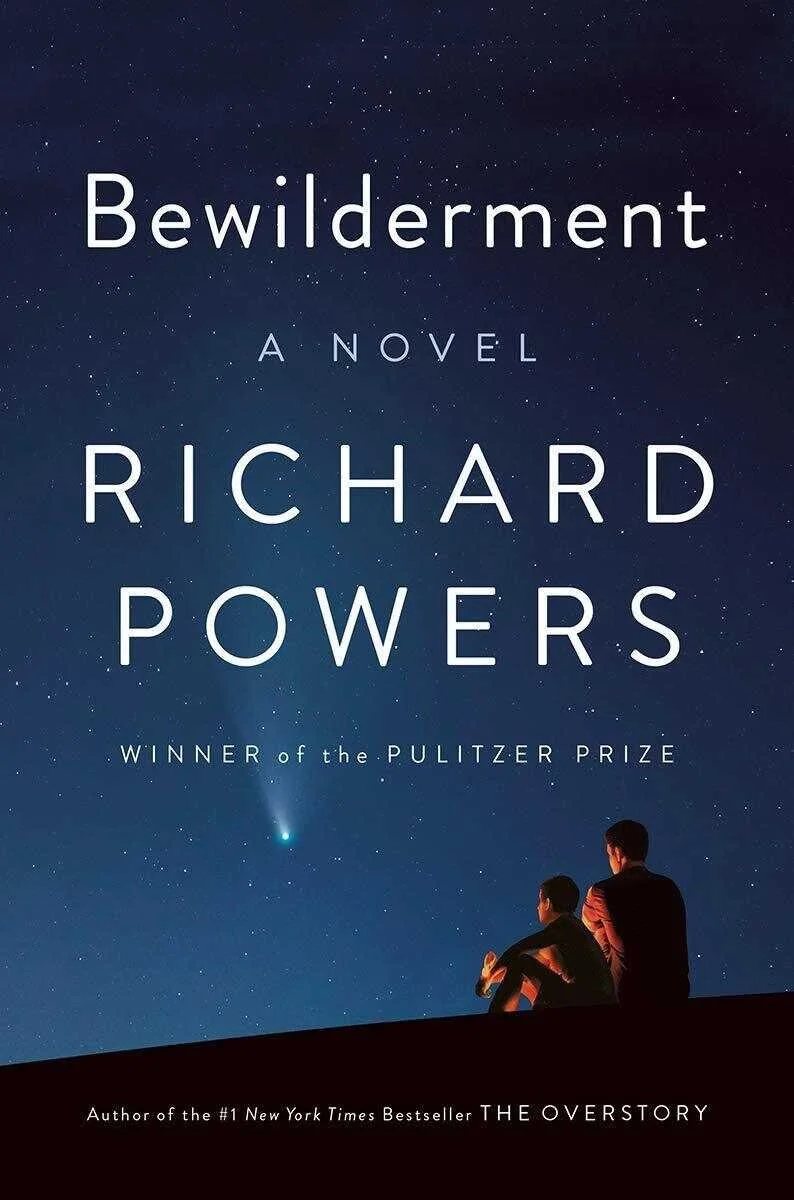Bewilderment by Richard Powers
This book is about a father, Theo, and his young son, Robin, who seems to have some ADHD and autism combination which makes his insights into the world fascinating, but his behaviour challenging at times. Robin’s mother was an environmental activist and her values run strong through her son, who finds the suffering of all ‘sentient beings’ and the desecration of the environment to be almost completely unbearable. But Theo is uneasy about putting Robin on medication, and luckily stumbles upon a kind of answer; he enters his son into a trial for ‘neurofeedback’, where he will be tasked with mimicking the brain patterns of people in more calm mental states, including his own mother’s. I went back and forth with this book. It is overly sentimental, for sure. And the ending is questionable on that front from various points of view, from its literary merit through to its depiction of neurodivergence and disability. Indeed, perhaps even the concept of the neurofeedback might be difficult for neurodivergent readers, for Robin becomes a different child; more calm and collected, able to control his emotions and outbursts, almost inhumanly so. And what do its anti-medication sensibilities mean for those who find their medication to be lifesaving and important? I do really love the way Powers integrates science into his novels though, he always makes me think and brings new things to my attention. Theo being an astrobiologist, there was lots of interesting stuff in here. For one thing, this book is certainly better than Flowers for Algernon, which it seems to be reworking with the trajectory of Robin’s problems (little spoiler there for those of you who have read that novel, though I don’t recommend it). But overall although I found myself reading to the end, I think it is pretty flawed and urge you to approach it with caution.
